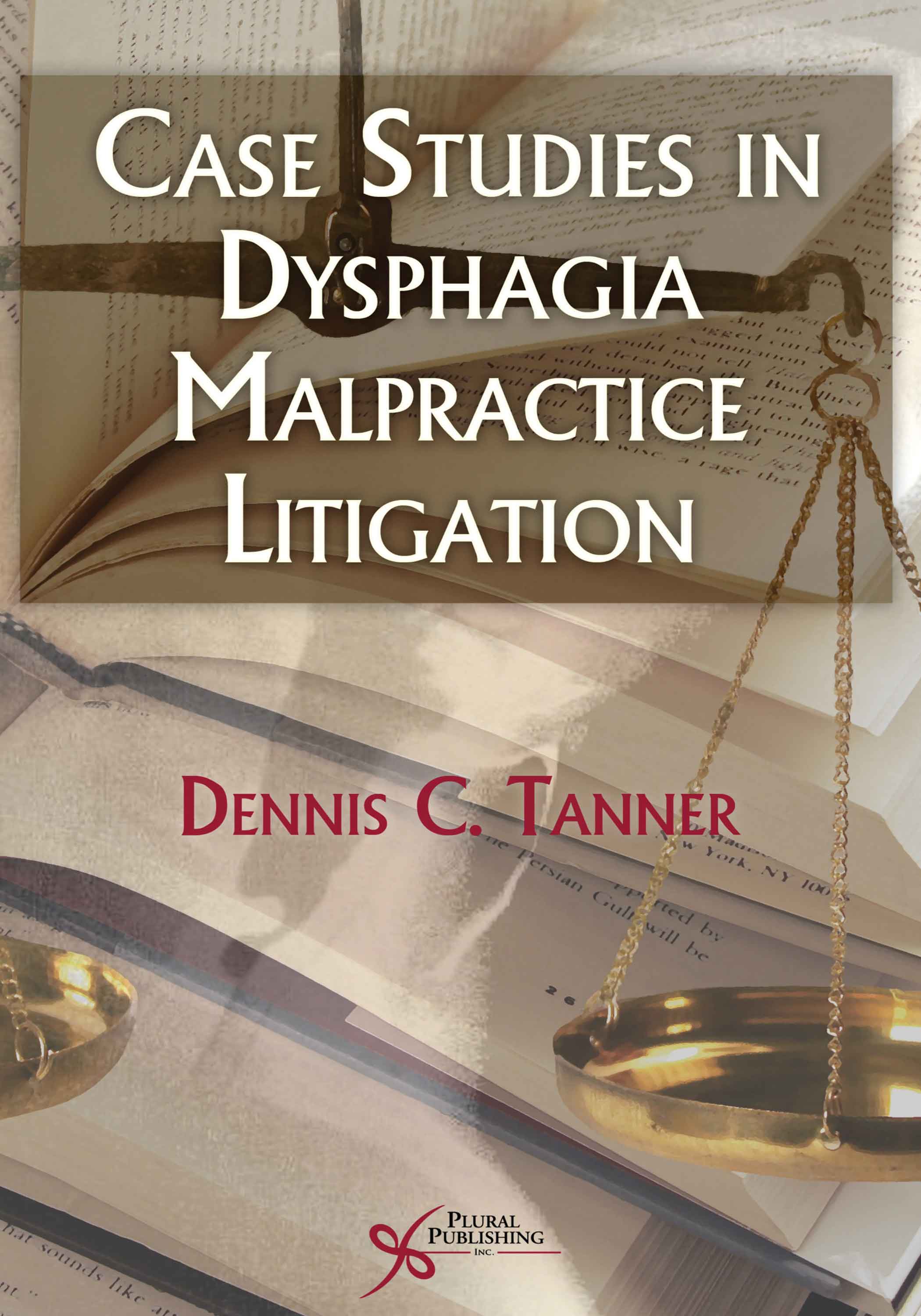
Case Studies in Dysphagia Malpractice Litigation
First Edition
Dennis C. Tanner
Details: 109 pages, B&W, Softcover, 6" x 9"
ISBN13: 978-1-59756-325-3
© 2009 | Available
For Instructors
Purchase
Drawing on his experiences as an Expert Witness in numerous medico-legal cases, Dennis Tanner provides an overview of dysphagia and reviews issues that may lead to malpractice litigation.
The first part of the book he provides a general overview of the anatomy, physiology, and neurology of sucking, chewing, and swallowing. The three stages of swallowing are detailed including objectives, methods, and procedures of evaluation and treatment. In the second part, he addresses the primary issues in dysphagia malpractice litigation including professional proficiency in dysphagia management, professional communication, the clinical bedside assessment and instrumental swallowing studies, and diet and feeding considerations. Part III comprises a review of dysphagia malpractice litigation issues and the role of the expert witness, and the concluding part provides a comprehensive analysis of five dysphagia malpractice cases and reviews the issues from the plaintiff and defense positions. All five dysphagia cases involve the deaths of the dysphagic patients.
FROM THE AUTHOR
I have been involved in many legal cases during my thirty-year career in communication sciences and disorders. Although I have served, in some capacity, as an expert witness in cases involving voice disorders, stuttering, birth defects, and other communication disorders, the majority of the litigation concerned dysphagia. With few exceptions, the dysphagia cases involved the deaths of the patients allegedly from choking or aspiration pneumonia.
In most of these dysphagia malpractice cases, the plaintiff retained me. These cases involved a lengthy period of forensic investigation, sometimes taking years, and most were settled before going to trial. In all dysphagia cases that were settled out-of-court, I was not apprised of the specific settlement terms. However, the decisions often involved large awards to the plaintiffs from insurance companies representing medical facilities and health care professionals.
In every case, my resume and other credentials were made available to all parties involved in the litigation. My credibility in serving as an expert witness comes from my academic credentials, teaching experience and awards, and scholarship in the profession of communication sciences and disorders. Perhaps the most valuable contribution to my credibility as an expert witness is my extensive clinical experience supervising employees and consultants in dysphagia malpractice management or in my direct clinical provision of dysphagia services. This was done through my company, Tanner Rehabilitation Services, Inc., over a twenty-five-year period in which I was involved in the management of hundreds of dysphagia patients at several medical facilities.
What you will read in this volume is an overview of swallowing and dysphagia technical information that I consider important and were relevant to many cases of dysphagia malpractice litigation in which I was involved. While there are many books on swallowing and its disorders, and approaches to managing dysphagia, what is provided herein is based on a litigation perspective. While each legal case involving dysphagia management is unique, several issues usually surfaced as pivotal ones and are also discussed. There are also five case studies with analysis of their implications for dysphagia management practices. They are included for illustration purposes and to show the processes and outcomes of actual dysphagia malpractice litigation cases.
I understand and appreciate that dysphagia malpractice litigation is a controversial and hotly-contested topic. Some clinicians believe it is an unnecessary intrusion into a health care professionals provision of services by lawyers and the judicial system. Others believe that dysphagia malpractice litigation prevents unnecessary negative outcomes, results in a higher quality of service for all dysphagia patients, and provides just compensation and damages for dysphagia patients and their families who were victims of improper medical management of the disorder. I personally believe the latter while I respect the views of people holding the former opinion. However, the legal system provides for resolution of malpractice litigation based on the rule of law and the opinions of expert witnesses.
Reviews
"... Offers a good summary of dysphagia and its effects, study and discussion questions, suggested readings and a glossary, making this ideal for in service training as well as classroom use."
—SciTech Book News (2008)
- Foreword
by Christopher Regan, Esq. - To the Reader
- Acknowledgements
- Introduction
- Part I: Overview of Swallowing and Dysphagia
- Defining Dysphagia
- Primary Nerves and Muscles of Deglutition
- The Dysphagia Evaluation
- General Background Information
- Oral Stage Clinical Bedside Assessment
- Pharyngeal Stage Clinical Bedside Assessment
- Laryngeal-Esophageal Clinical Bedside Assessment
- Instrumental Dysphagia Assessment
- Treating Dysphagia
- Tracheotomies
- Feeding Tubes
- Pediatric Dysphagia
- Thought, Discussion, and Study Questions
- Part II: Issues in Dysphagia Malpractice Litigation
- Primary Dysphagia Malpractice Litigation Issues
- Professional Proficiency in Dysphagia Management
- Professional Communication
- Accuracy, Appropriateness, and Timeliness of Clinical Bedside Screening and Assessment
- Instrumental Swallowing Studies
- Fiberoptic Endoscopic Examination
- Videofluoroscopic Swallowing Study
- Diet, NPO Status, and Tube Feeding
- Thought, Discussion, and Study Questions
- Part III: Dysphagia Malpractice Litigation and the Expert Witness
- Opinions, Impeachment, and Probabilities
- The Investigative Process
- The Clinical Timeline
- Thought, Discussion, and Study Questions
- Part IV: Dysphagia Malpractice Case Studies
- Case Study 1: Albert Anderson
Opinion - Case Study 2: Christine Fuller
Opinion - Case Study 3: Roy Johnson
Opinion - Case Study 4: Catherine Townsend
Opinion - Case Study 5: Joan Munger
Opinion - Case Analyses and Recommendations
- Summary
- Thought, Discussion, and Study Questions
- Case Study 1: Albert Anderson
- References
- Suggested Reading
- Abbreviations and Glossary
- Index
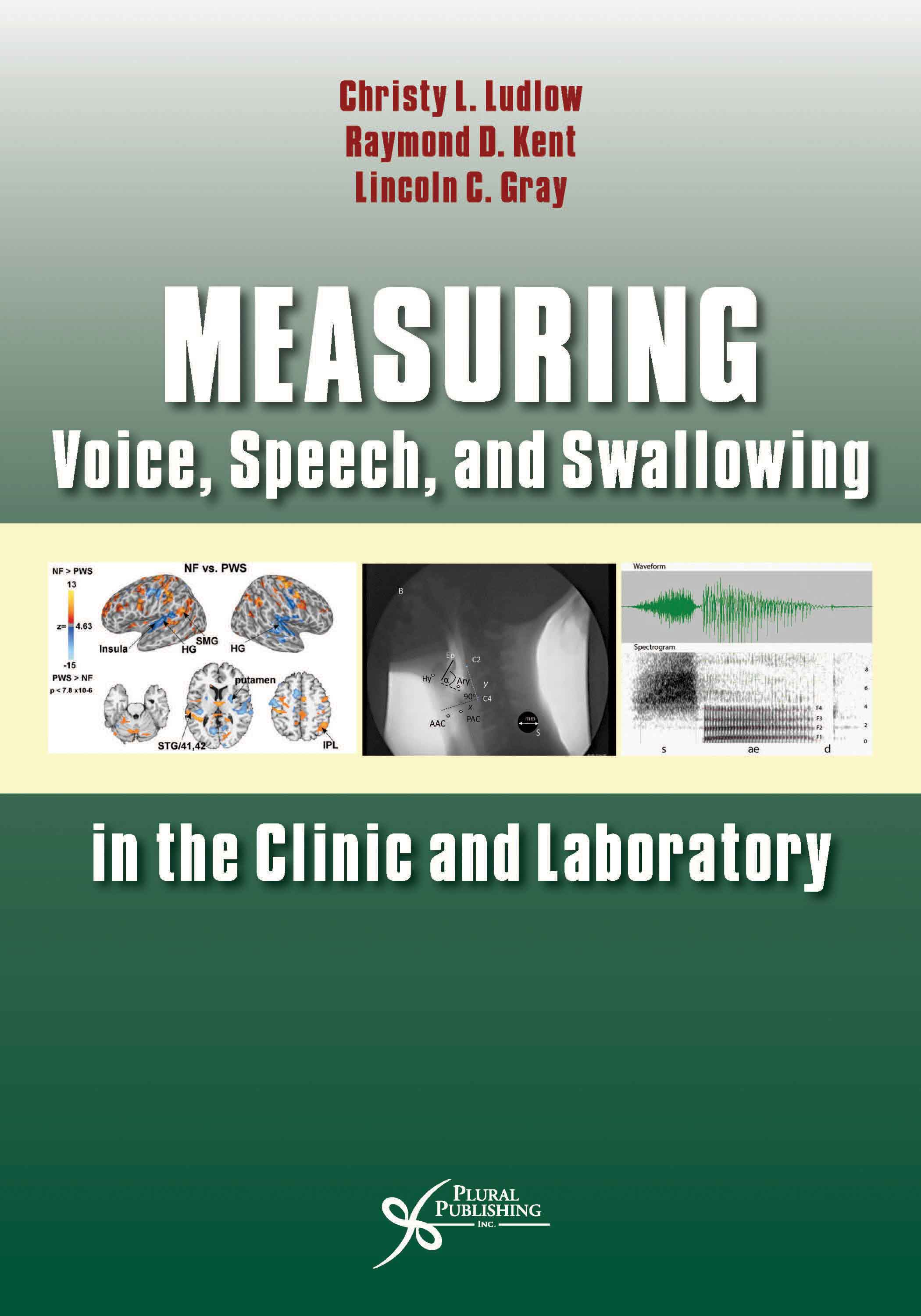
Measuring Voice, Speech, and Swallowing in the Clinic and Laboratory
First Edition
Christy L. Ludlow, Raymond D. Kent, Lincoln C. Gray
Details: 566 pages, Full Color, Spiral Bound, 7" x 10"
ISBN13: 978-1-59756-464-9
© 2018 | Available
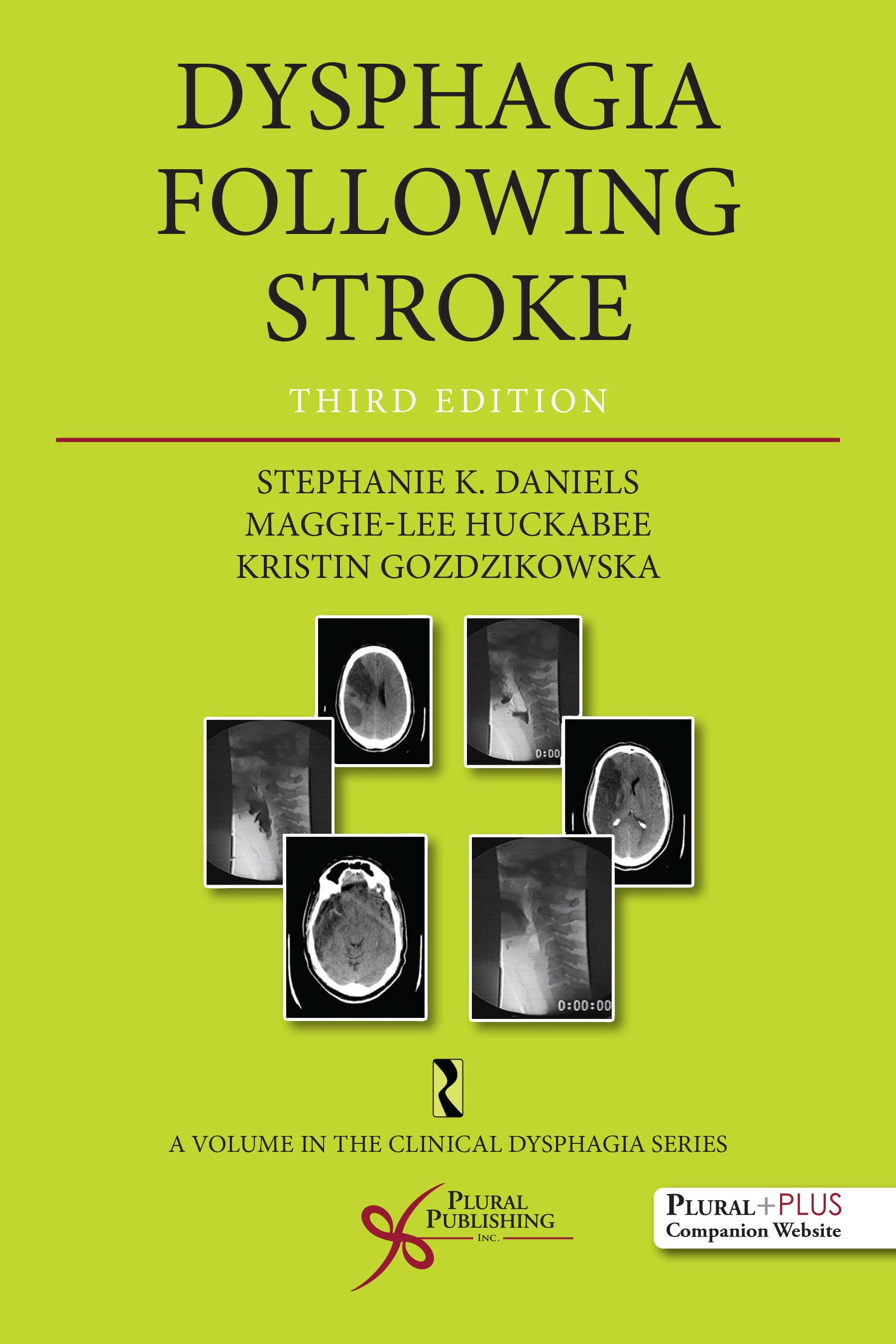
Dysphagia Following Stroke
Third Edition
Stephanie K. Daniels, Maggie-Lee Huckabee, Kristin Gozdzikowska
Details: 500 pages, B&W, Softcover, 6" x 9"
ISBN13: 978-1-63550-030-1
© 2019 | Available
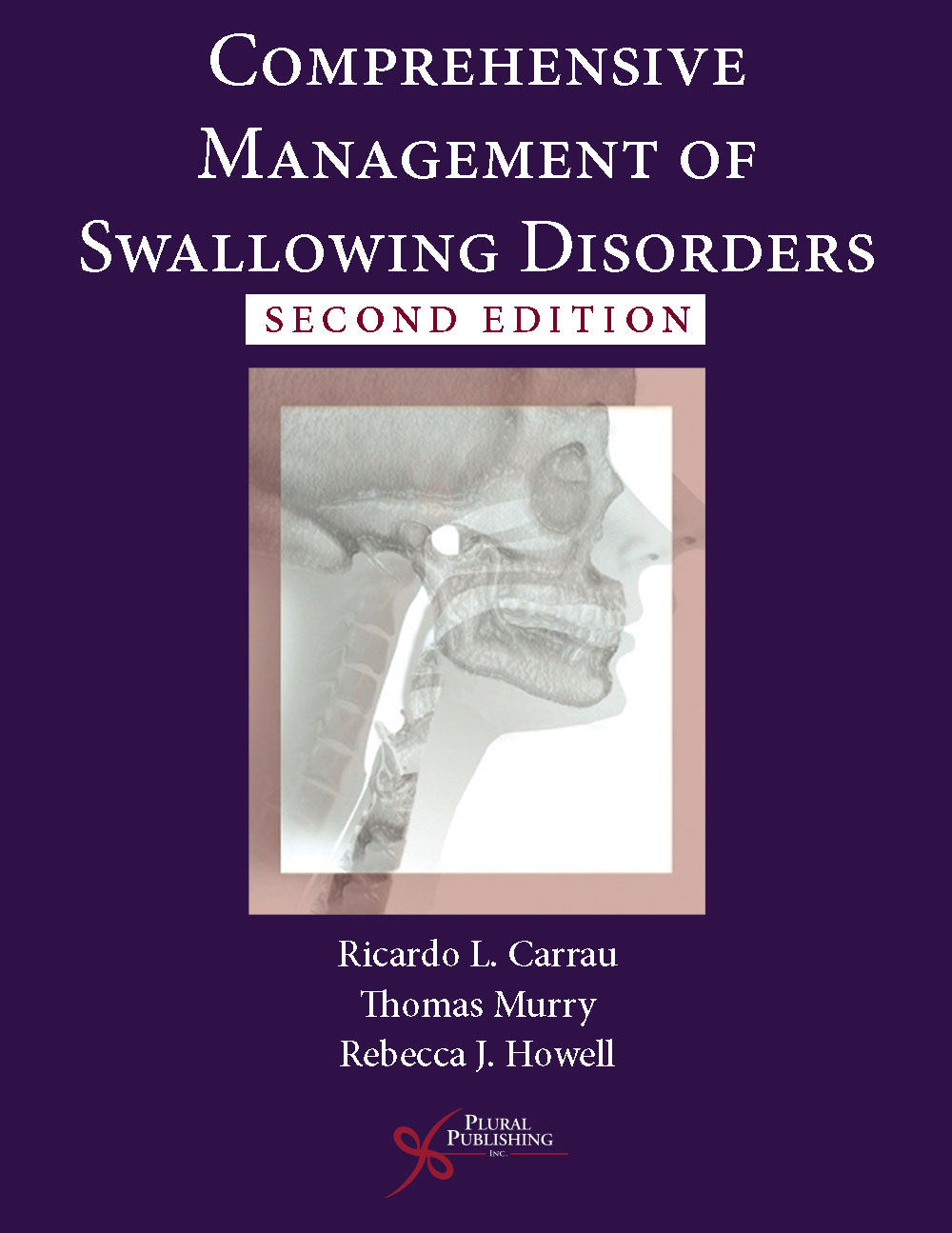
Comprehensive Management of Swallowing Disorders
Second Edition
Ricardo L. Carrau, Thomas Murry, Rebecca J. Howell
Details: 576 pages, B&W, Softcover, 8.5" x 11"
ISBN13: 978-1-59756-730-5
© 2017 | Available

Management of Swallowing and Feeding Disorders in Schools
First Edition
Emily M. Homer
Details: 318 pages, B&W, Softcover, 6" x 9"
ISBN13: 978-1-59756-515-8
© 2016 | Available
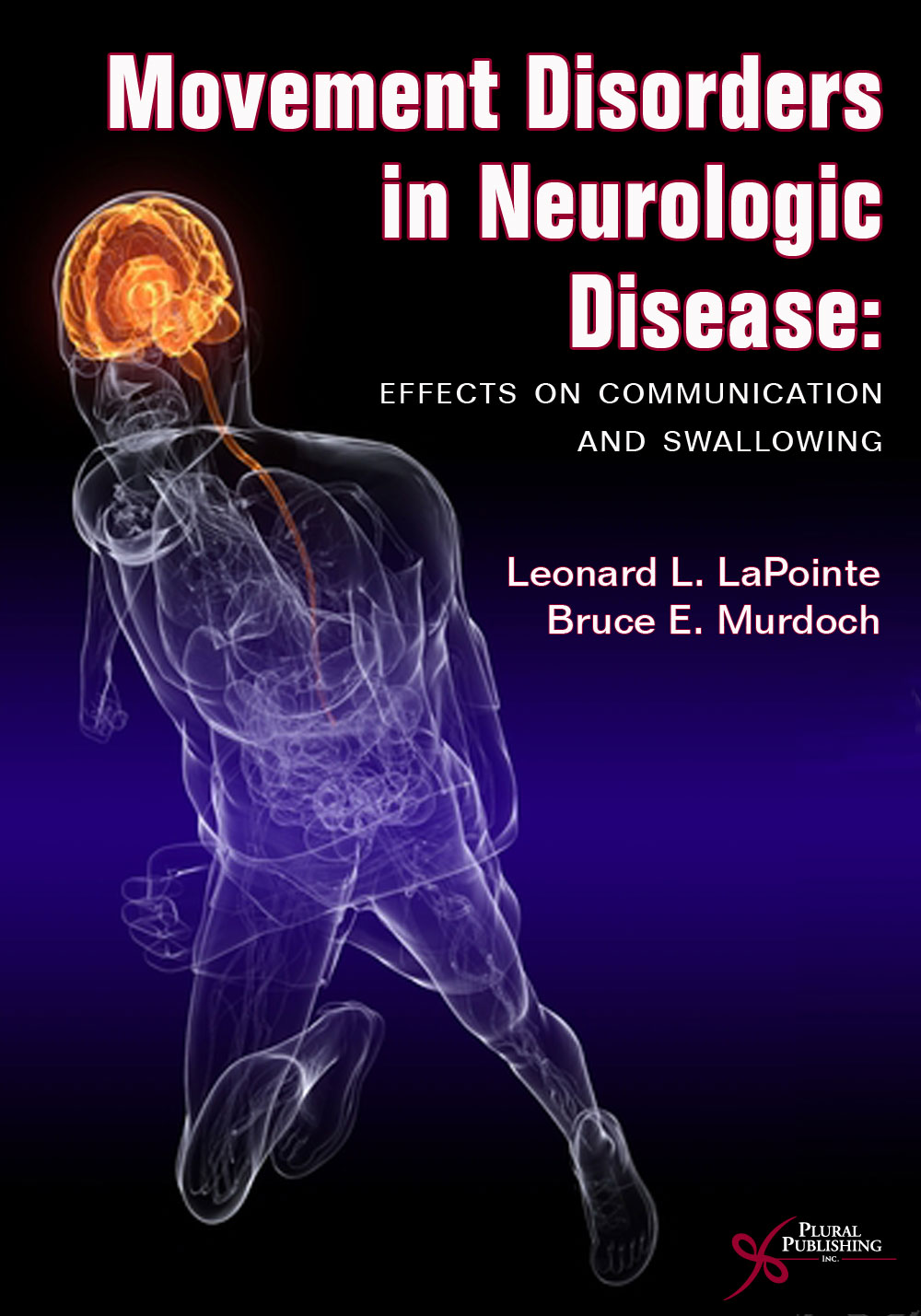
Movement Disorders in Neurologic Disease: Effects on Communication and Swallowing
First Edition
Leonard L. LaPointe, Bruce E. Murdoch
Details: 232 pages, B&W, Softcover, 7" x 10"
ISBN13: 978-1-59756-152-5
© 2014 | Available
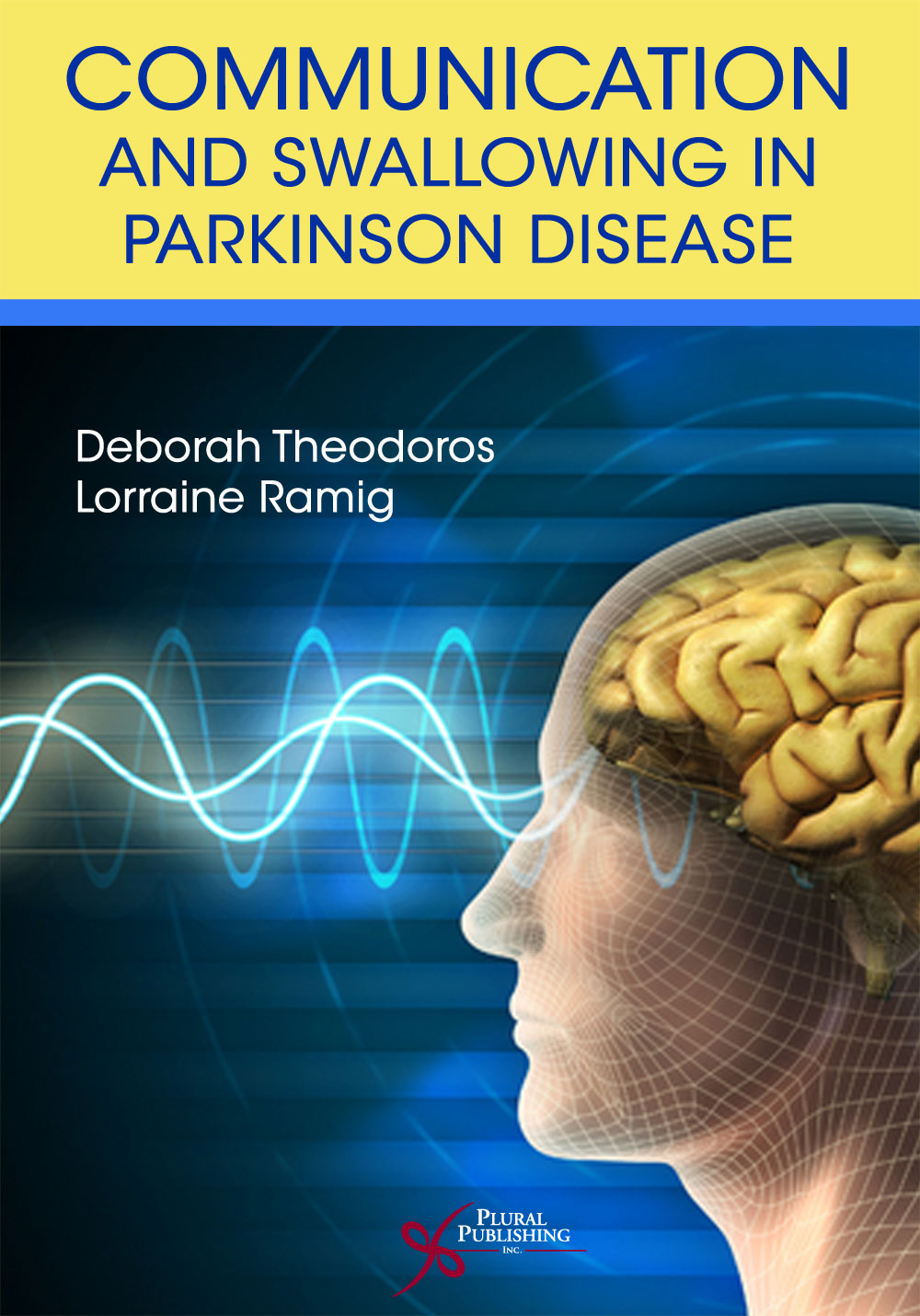
Communication and Swallowing in Parkinson Disease
First Edition
Deborah Theodoros, Lorraine Ramig
Details: 256 pages, B&W, Softcover, 7" x 10"
ISBN13: 978-1-59756-205-8
© 2011 | Available
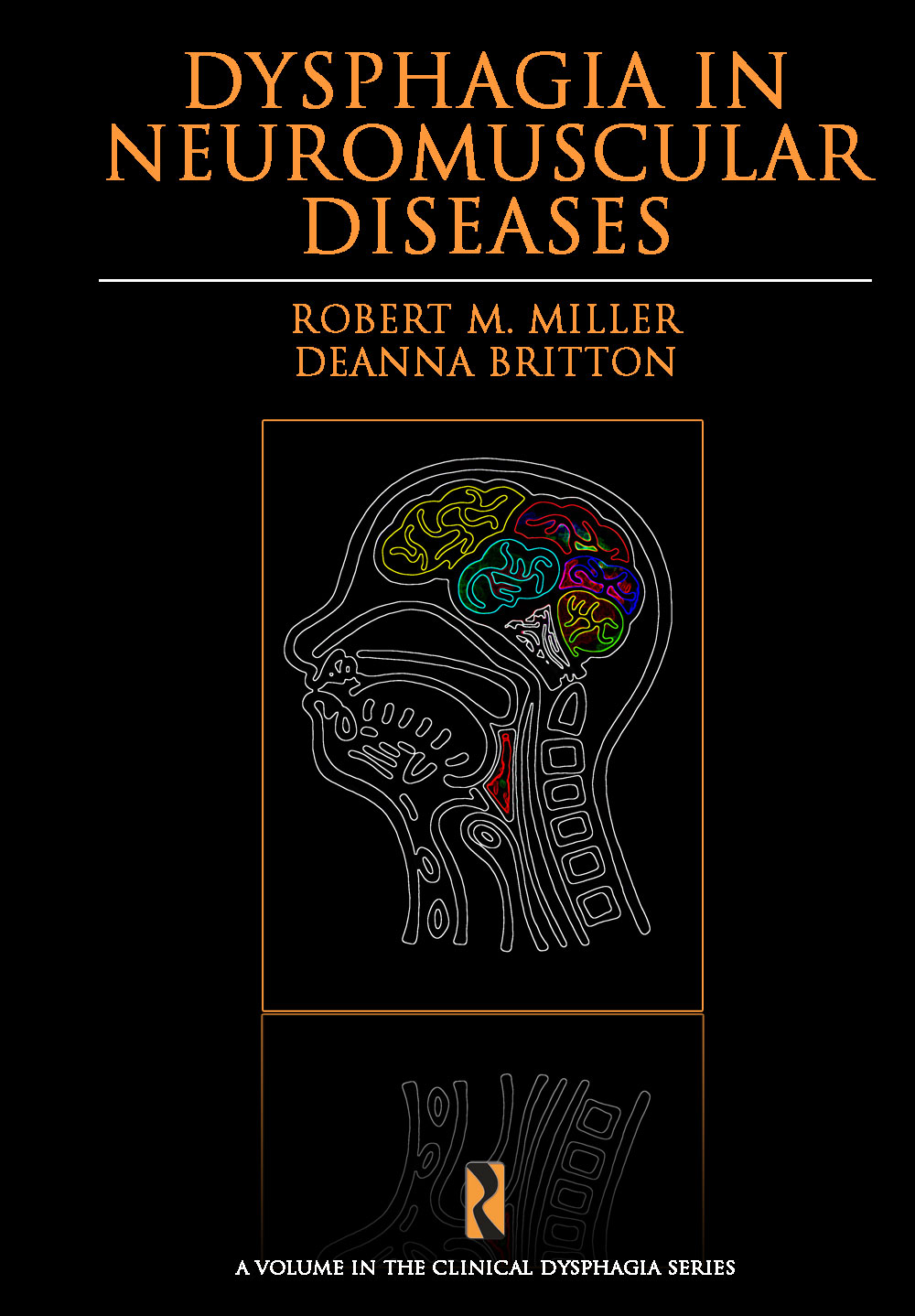
Dysphagia in Neuromuscular Diseases
First Edition
Robert M. Miller, Deanna Britton
Details: 250 pages, B&W, Softcover, 7" x 10"
ISBN13: 978-1-59756-369-7
© 2011 | Available
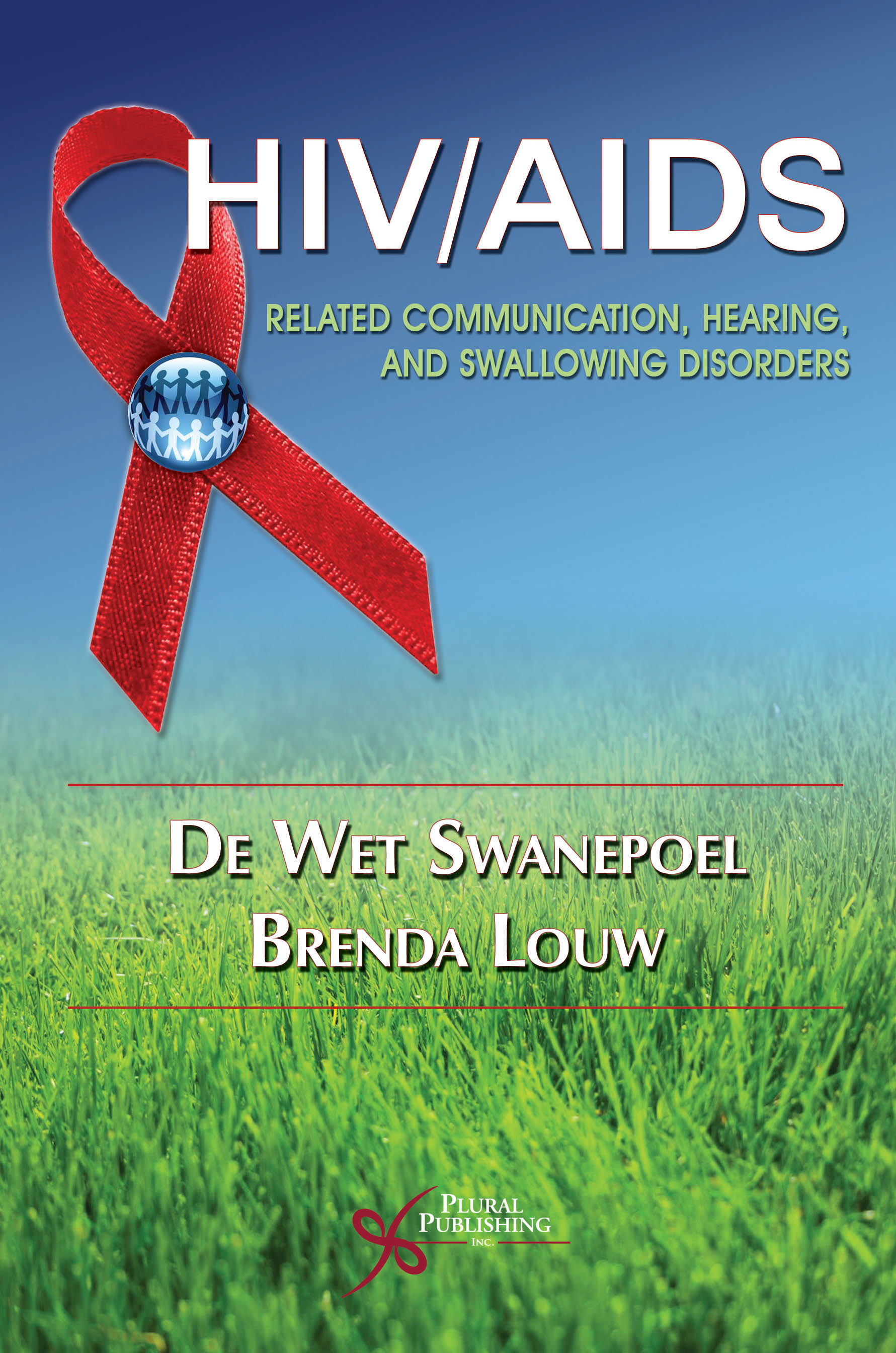
HIV/AIDS Related Communication, Hearing, and Swallowing Disorders
First Edition
De Wet Swanepoel, Brenda Louw
Details: 456 pages, B&W, Softcover, 6" x 9"
ISBN13: 978-1-59756-262-1
© 2010 | Available

Dysphagia in Rare Conditions: An Encyclopedia
First Edition
Harrison Jones, John C. Rosenbek
Details: 736 pages, Full Color, eBook
ISBN13: 978-1-59756-747-3
© 2010 | Available

Dysphagia Post Trauma
First Edition
Elizabeth C. Ward, Angela T. Morgan
Details: 264 pages, B&W, Softcover, 7" x 10"
ISBN13: 978-1-59756-236-2
© 2009 | Available
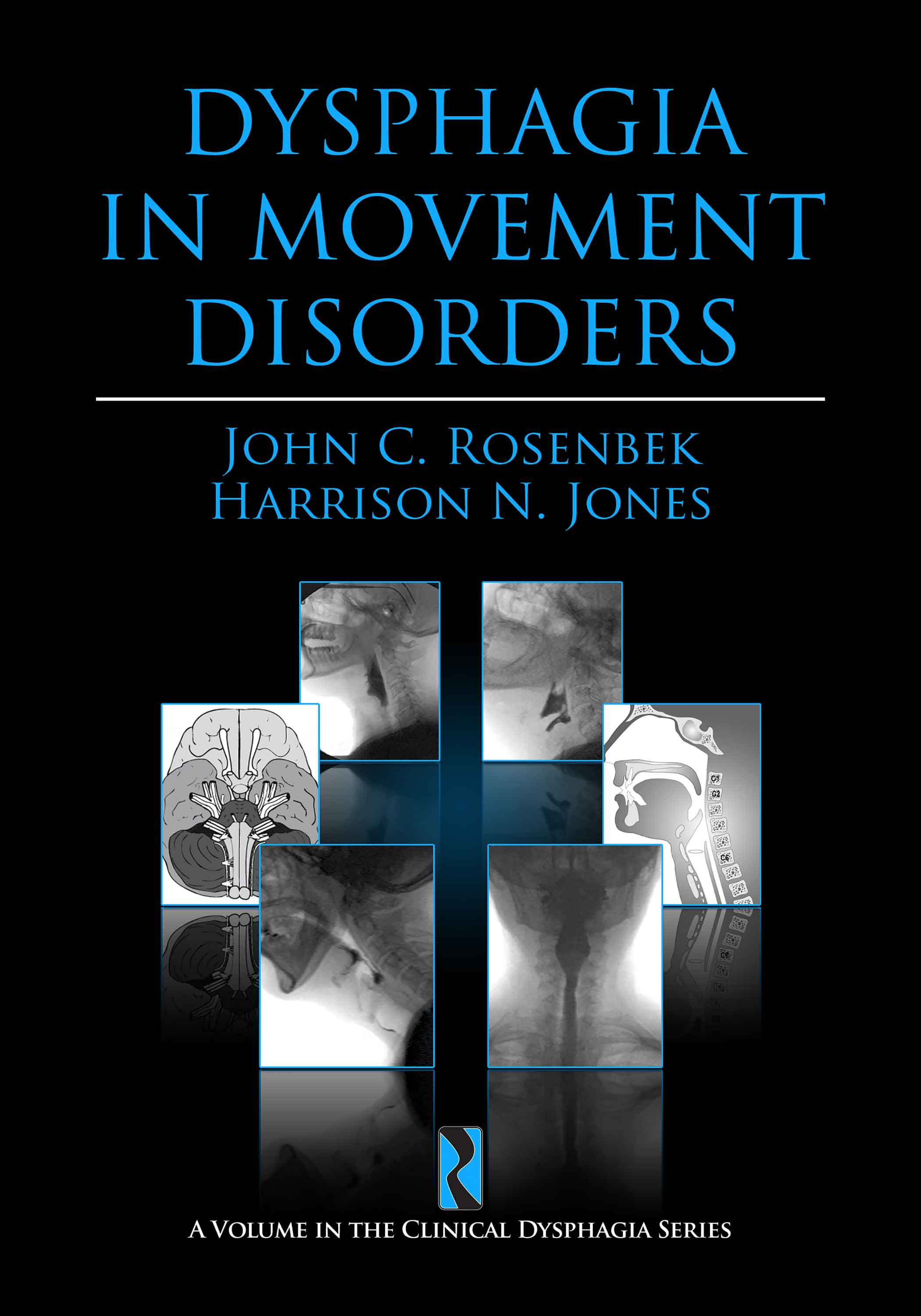
Dysphagia in Movement Disorders
Harrison Jones, John C. Rosenbek
Details: 275 pages, B&W, Softcover, 7" x 10"
ISBN13: 978-1-59756-228-7
© 2009 | Available

